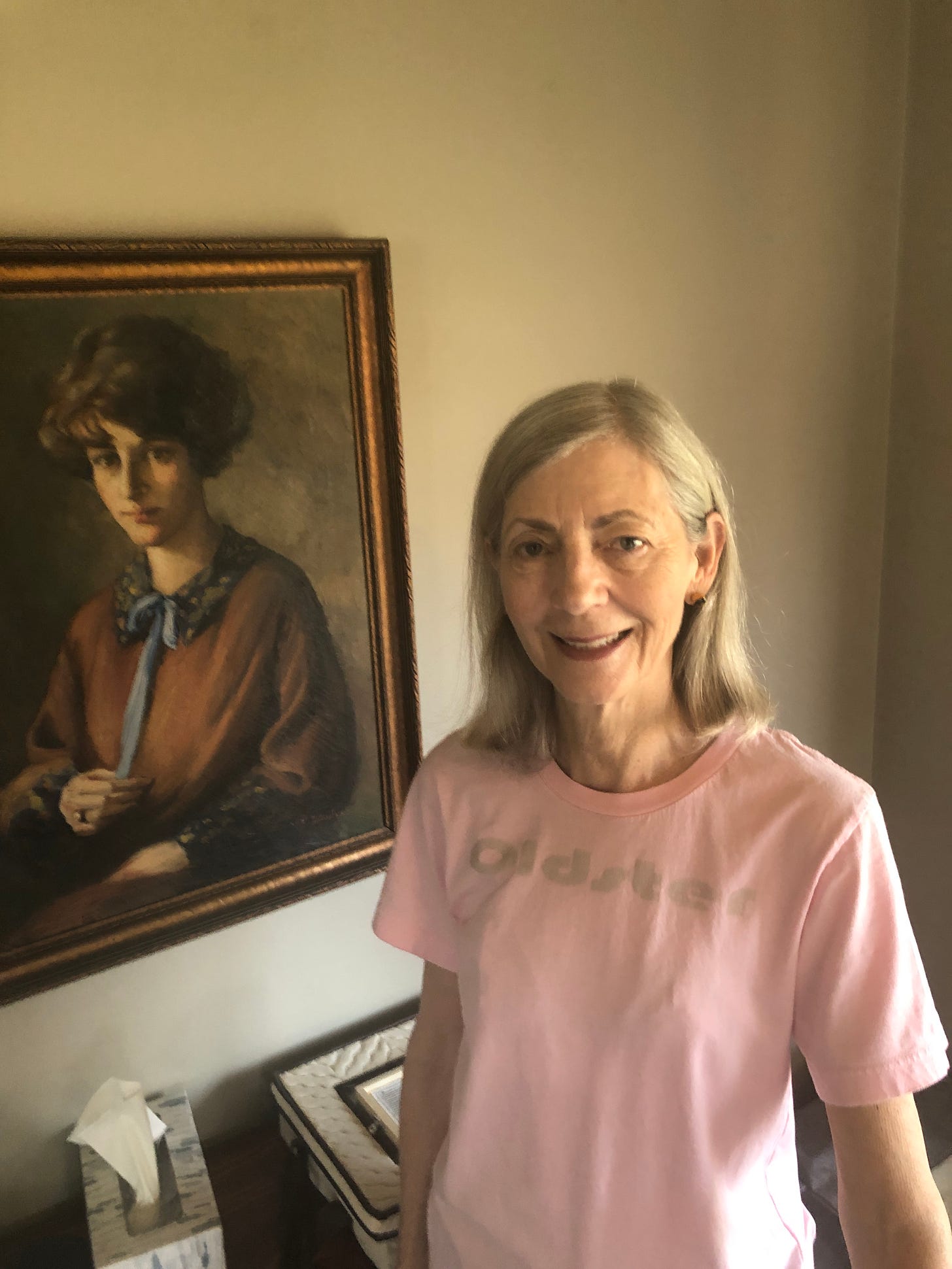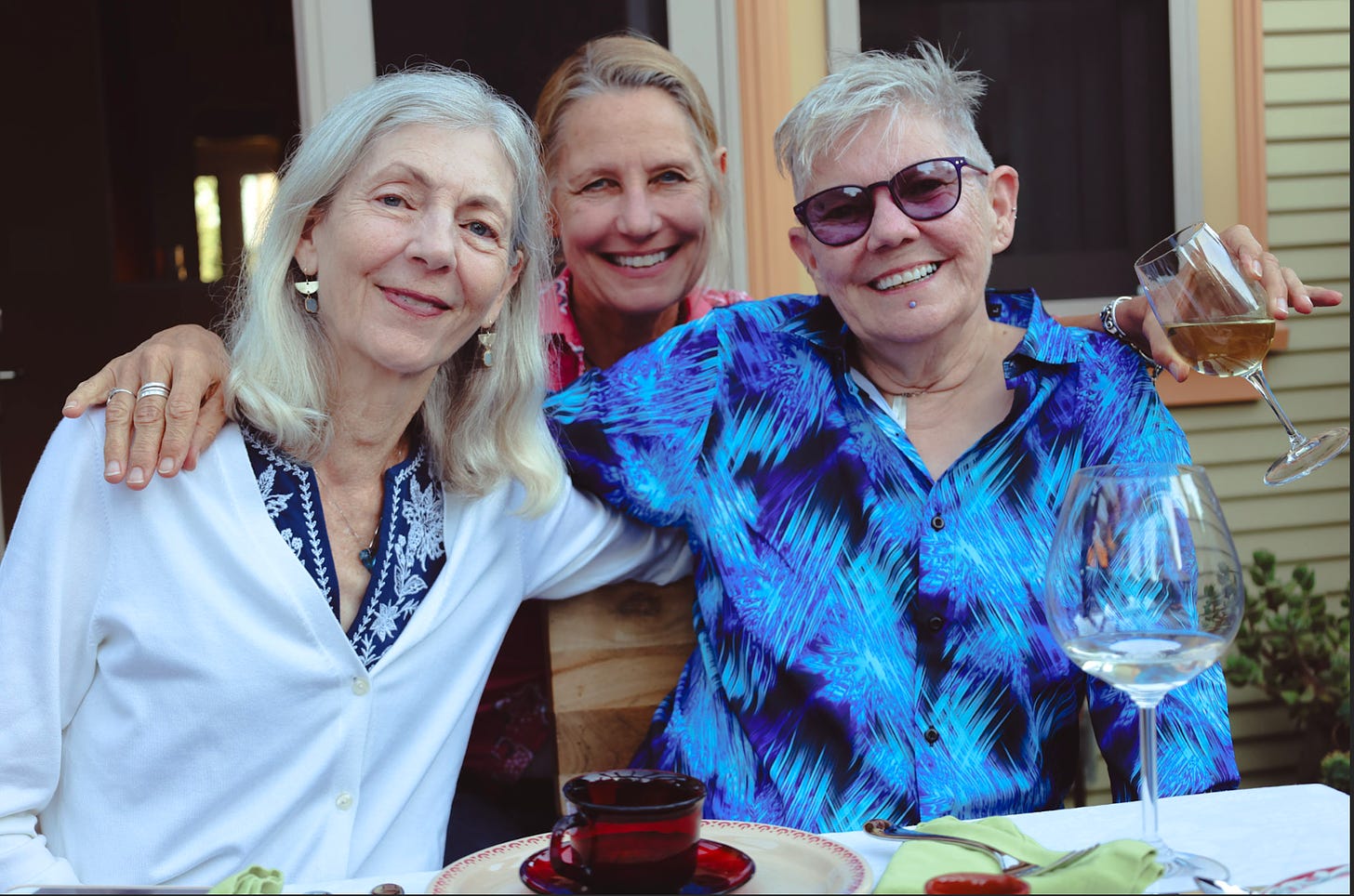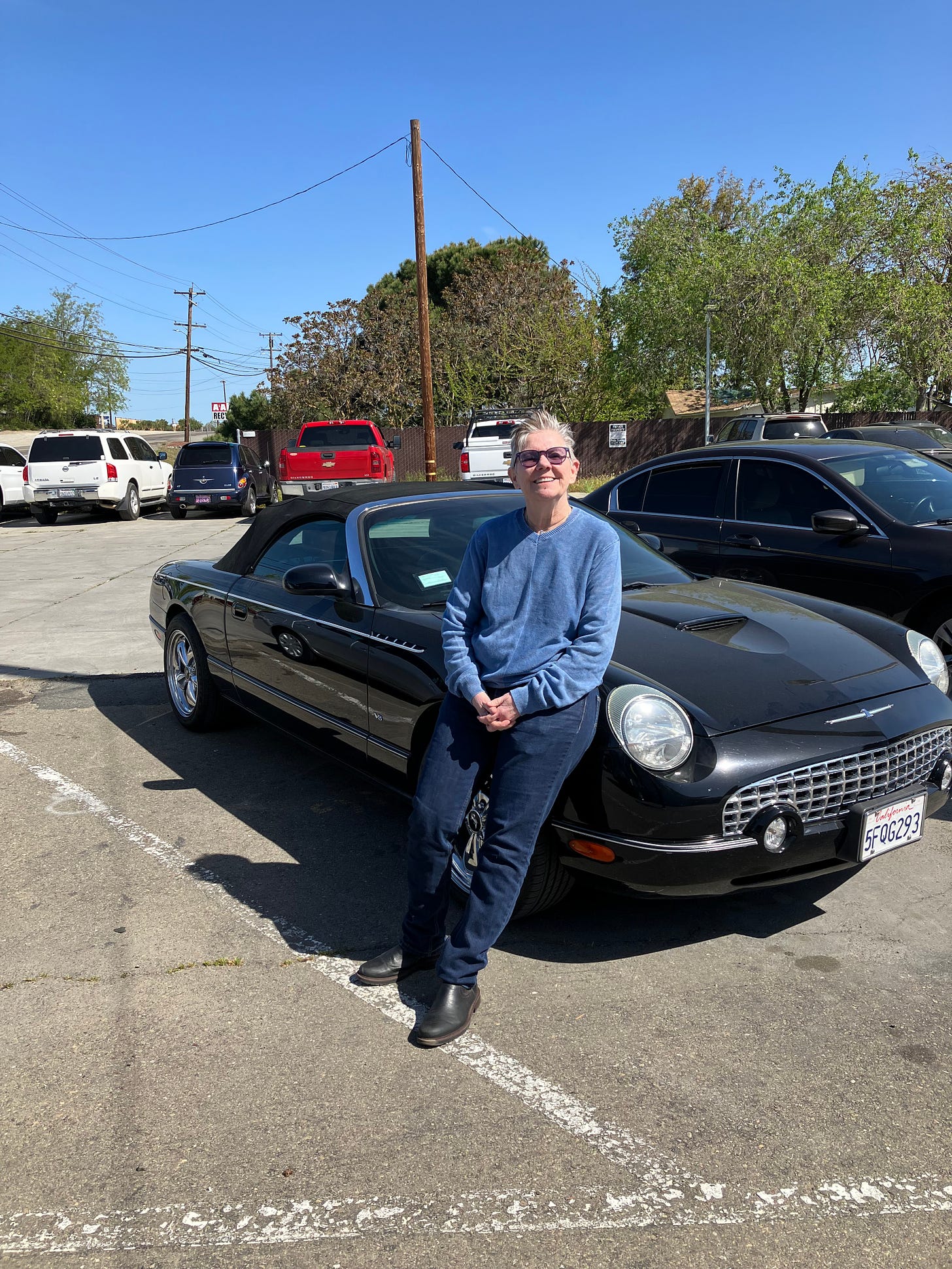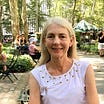Identity, Heritage, and a Lost Sister
When Eileen Bader Williams and her siblings treated themselves to Ancestry DNA tests for Christmas 2020, they were in for a big surprise.
I had no qualms about spitting into the vial. I did it on a lark. My sister, Mary, took the test too. We’d get our Ancestry.com results in time for Christmas (2020) — a present to ourselves. We could compare the findings — who had more Irish DNA, or more German? I had red in my hair; she did not. Census records and dusty letters provided information about our ancestors in America, but the ones across the ocean were a mystery. Maybe William the Conqueror was in our lineage, or Charles the Hammer. What did we have to lose?
I was inspired to take the plunge into my gene pool after participating in a Zoom meet-up through my local library with Libby Copeland, author of The Lost Family: How DNA is Upending Who We Are. Intrigued by case studies delving into family heritage — its twists, turns, and surprises, the medical miracles, the family drama — I said to my sister, “We should do this.” Mary and her husband were preparing to visit my grandfather’s cousins in Germany. However, we did not anticipate that we were about to unearth the skeletons in our own family’s closet.
Once we got the results, we called each other to compare. After logging into the Ancestry website, I deciphered a graph charting my DNA origins by region. The geographical designations were far-ranging; the color-coded map on my Irish line extended from Connacht County to the Channel Islands and clear up to Iceland. My percentage of Irish, listed as 68%, could be anywhere from 47 to 75%, according to the site. My sister had more Scottish. "I should visit Ireland and Scotland, not Germany,” she chuckled commenting on her similar (but different) breakdown.
It came as a surprise that my DNA was much more Irish than German. Growing up, I proclaimed, “I’m half German and half Irish,” like our family dog who was half German Shepherd and half Irish Setter. The Germanic portion of my DNA was reported as only 12% and that sliver — not side — extended to Belgium and the Netherlands.
We’d get our Ancestry.com results in time for Christmas (2020) — a present to ourselves. We could compare the findings — who had more Irish DNA, or more German?
I long had fairly negative associations with my Irishness: mean Catholic nuns; my grand uncle with the red bulbous nose; my mother’s propensity towards tittle-tattling. My German “side” conjured images of my builder grandfather, cuckoo clocks, and a stability that provided an oasis of calm during my parents’ fractious divorce.
I clicked on the tab marked Eileen Williams DNA matches. There was Mary, a 51-58% DNA match — no surprise for a sibling. But, a mysterious other woman was pictured as well.
This stranger was a 27% match. She could have been an aunt or a niece, but the math suggested a different relationship. Eight years my junior, I knew she had to be a half-sister. However imprecise region-pinpointing on the site might be, identifying a blood relative through the test tends to be terribly spot on.
In her picture she was sitting on a porch step hugging a young boy. Her son? More math. He must be her grandson. (I find out later it’s her godson.)
Her name was Colleen, but beyond that, so far she was a statistic. A fleeting thought told me I could just leave it at that. Should leave it at that. I clicked on her family tree tab. There in one of her circles was a random picture of my father — the type that I might have found in a drawer. He was sitting in a chair, and it wasn’t a perfectly clear likeness, but it was him alright. The reddish hair, the spectacles. My grandfather was pictured in another circle.
I thought, What are they doing on her page? That’s my grandfather!
My parents (more math) might have been separated or divorced when she was born, but my Dad had a daughter?
“Why don’t you contact her?” I said to Mary. “You’re more social than I am.”
“No, you first,” she insisted. “You’re the one who wanted to do this.”
In the picture, Colleen resembles a younger version of my grandmother — same pug nose. There was more synchronicity afoot. Her name, Colleen, rhymes with mine. She lives on Essex Street in a town in California, 3,000 miles away from my sister, Mary, who lives on Essex Street in a town in Pennsylvania.
I wondered, Maybe I should ‘friend’ her on Facebook. But faced with having to make a mental leap from stranger to friend to sister felt overwhelming. And was I ready for more upheaval around my family and identity? I asked myself, Why does it matter? Who am I? Who are we anyway?
Now in my 60s, I feel secure in my identity, serene even. I had been a late bloomer and there were bumps on the road to adulthood, but now I’m a grandmother, sister, and aunt, a woman who has been married forty years, who happily resides in a state of grace called Vermont. I’m retired and have meaningful, volunteer work as a guardian ad litem. I thought I was past the age at which life threw you lots of curve balls and surprises. Although really, are we ever that?
My oldest brother was angry when he heard about Colleen — angry at my father. “Once again Dad did not take responsibility,” he said. My younger brother, unbothered, remarked, “Sure, I’d be happy to meet her.”
I clicked on the tab marked Eileen Williams DNA matches. There was Mary, a 51-58% DNA match — no surprise for a sibling. But, a mysterious other woman was pictured as well…This stranger was a 27% match.
More thoughts roiled through my head: Could I make room for another family member? For more sibling stress? In my family of origin I have three living siblings. Our childhood wounds and adult differences have not always been easy to navigate. While we cherish get-togethers, sometimes we recoil from the dysfunction that cast us on opposite sides of the divorce fault line. We each have a different version of our childhoods, our parents, and the world, to boot.
Finally, I took the first leap and reached out, messaging Colleen through the site.
Jan. 17, 2021
It looks like we might be related.
You have my grandfather listed as yours.
My father was J.M. B….
Let me know if I’m interpreting this correctly
Would love to hear from you
Eileen
Her reply:
OMG! It is so great to hear from you. My father is also J.M. B*****, which I wasn't 100% sure about until I did the DNA testing. I'm afraid I'm not quite experienced with Ancestry.com. So, yes, if your father is JMB, it looks as though we are actually half-sisters. I do know that could be surprising at best or shocking at worst. I'm hoping for the best. Take care, and thank you for contacting me.
Colleen
In another email, she recounted to me how strange it was to write the word “father.” Likewise, it was surreal for me to hear it coming from her. With some trepidation, I waited for potential landmines to detonate in our path toward sisterhood.
Another email from Colleen:
I'm gay and that would make me sad if that were a problem for you.
I digested this new information. Would this put us at odds, because of my church affiliation? And would she reject me? More new territory.
Finally, my response:
Colleen, ‘Lil Sis’
I believe there is a person beyond the label. And love is the most important thing that there is, so I hope you don't have a problem with me! ha. We have learned in my family to park our differences at the door. In other words, we don't discuss politics!
Then we waded into politics and religion with one quick dunk. She wrote:
BTW, with regard to your husband being a Republican, many of my best friends are Republicans. With regard to you going to church, I am a very staunch progressive Christian, and before Covid, went to church religiously (pun intended). Colleen
My sister and her husband, travel junkies, immediately made plans to visit Colleen in California. They report having a great time. My niece, Heather, visited and took to her immediately.

Then strange morphed into threatening: Colleen is the “cool” aunt, I lamented glumly.
“When are you going out to visit?” My sisters asked.
I wondered, What would I talk about? The wonderful grandfather she has never met? Look at all that she has missed out on, all of her losses. A weight settled on my shoulders as I reflected on my Dad’s unfinished business. One half of me thought, You don't need to think of it that way, and the other thought: Yes, you do.
Colleen had missed out on the good stuff: memories, gatherings, redemption. Or maybe she had been spared? The pain, the hard work, the dysfunction. Which was it?
Mary, the family extrovert, suggested we play a trivia dinner party game via three-way emails.
Q: What dog are you?
Colleen:- a lab, playful, great w/ kids, fun and funny, loyal, kind and good-natured, try to please.
Me: (according to Colleen) A king Charles Spaniel, attached to their people, sensitive personality, adverse to yelling — intelligent, sweet disposition.
Now in my 60s, I feel secure in my identity, serene even. I had been a late bloomer and there were bumps on the road to adulthood, but now I’m a grandmother, sister, and aunt, a woman who has been married forty years…I thought I was past the age at which life threw you lots of curve balls and surprises.
Lags between email communications left me on pins and needles. I wondered if I'd hear from her again. Did she decide to cut off contact? Did she change her mind? I’d have to take it one bump in the road at a time.
Q: What would you do if you won the lottery?
Help the homeless, we both answered
Then came the birth of my granddaughter in February, 2021. While visiting San Diego, I found myself reflecting on my lost sister’s painful childhood, and while also thinking about my granddaughter’s future, her challenges, her choices. My spinning mind was having trouble containing it all.
I thought, I’m in California. I could fly up to meet her.
Then I second-guessed myself.
Siblings have a shared history. Colleen and I did not have that. We never would.
Colleen sounded excited to have discovered us. I thought, Slow down, Lil Sis. Do you know how complicated it can be to navigate family relationships? I wanted to warn her about our family’s emotional pitfalls. I, who had dealt with the family, the joys and heartbreaks, for longer. I worried her expectations weren't realistic and that we couldn't be who she needed us to be. Big sigh.
“Mom, I think you’re overthinking this,” remarked my daughter. “Just pretend she’s a friend for now — not your sister.” I wondered, How do you do that? Panicky, I threw a few things in my suitcase for a trip to Northern California — a meet-up that got derailed due to a family emergency. Honestly, I was relieved. I wasn't ready.
Mary, older, wiser, and mouthier remarked: “Why does this bother you?” We were pretty skilled at needling things out of each other.
“I think I would like a sister like me,” I whined. “Colleen’s more like you.”
Even my brother-in-law agreed, “She’s another Mary!”
Q: If you were on death row, what would you request for your last meal?
Her: a Big Mac
Me: sushi
***
I took a trip to the Bay Area.
Traffic and bridge dreams tormented my sleep. Golden Gate, Airplanes. Sister. My nerves quaked and rattled. When her convertible car sauntered towards my hotel, her head bobbing along, I recalled images of Dad.
Colleen helped me put my suitcase in the back while I stared at her skin, so translucent and pale — that side of the family. She fluttered and made small talk and said, “Excuse me, I make bad jokes when I’m nervous.” Yep, she’s a Bader, I thought, chuckling inwardly.
That evening we attended a dinner party. At the table was a group of diverse friends — her “found family.” We ate from large platters of colorful paella and toasted to our health, happiness, and to us, found sisters.
While we didn’t have a shared history, maybe we had something better — a new history.
Colleen had missed out on the good stuff: memories, gatherings, redemption. Or maybe she had been spared? The pain, the hard work, the dysfunction. Which was it?
The next evening, as we sat in her apartment sipping wine, I sank into the chair cushions. Tales of her drug-addicted mom horrified me as, ironically, I swam deeper into the bottle. Minutes, hours, decades passed. “You were living practically down the road,” she said “I could have visited you.”
Chased from her childhood home at the age of 16, she attended college in Vermont on a scholarship. Her trauma sounded heartbreakingly similar to my foster kids’ stories, but here was my own sister. It was as if she had been kidnapped by criminals and was miraculously returned.
She reflected, “I think I survived my upbringing due to the Bader resiliency.” Talk about DNA.
What is family in the final analysis? Chance or choice? Is blood thicker than water as the saying goes? Does it all boil down to DNA?
Family, the ones who help to create our identity, shape our characters, also help stretch that narrow version of ourselves into something more expansive, into a self that learns to love, practices forgiveness and grows in compassion in ways that would not happen without them.
I concluded for myself that the definition of family is not just knit together by the strands of DNA, but through the bonds of loving support. “I’m here for you,” I told her. We are all family from the first comer to the later comer.
And it certainly doesn’t hurt if one of those members looks like your huggable, pugnacious Irish grandmother.
Copeland, Libby, The Lost Family: How DNA is upending Who We Are. Abrams, 2020.








So many interesting stories out there. The maple creemee stand is Devyn's on Rt. 78 on Hog Island!
I’m still amazed at the magic of Ancestry and DNA! I found my biological father at 55, which still astounds me at 65! Thank you for sharing this; feeling at peace knowing I’m not the only one with a story like this.